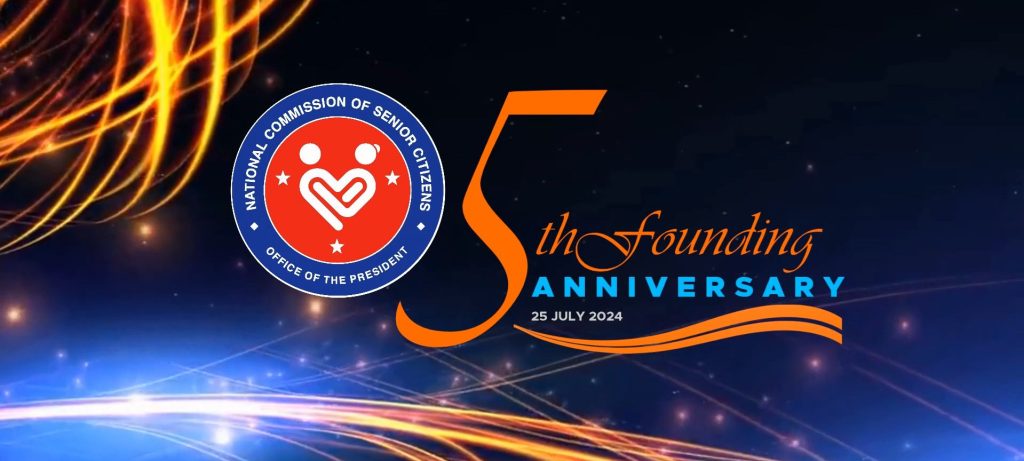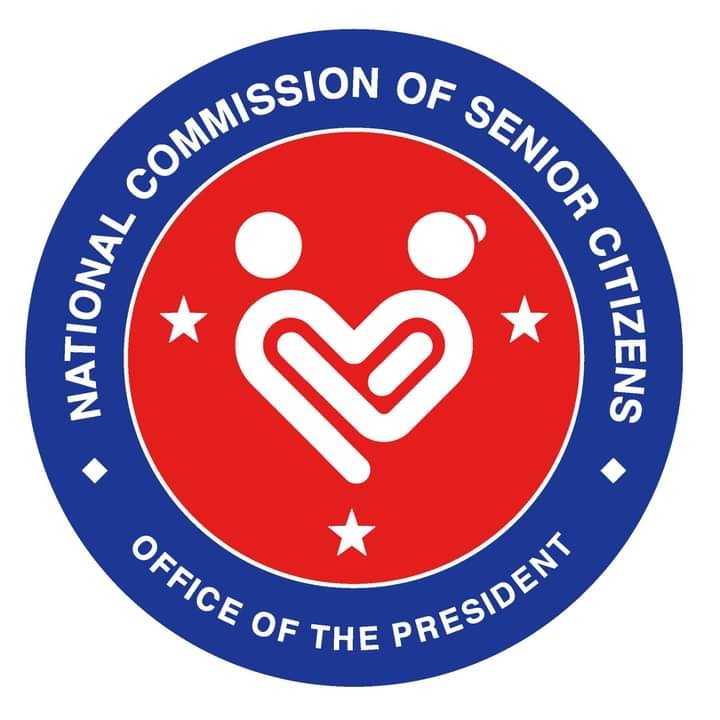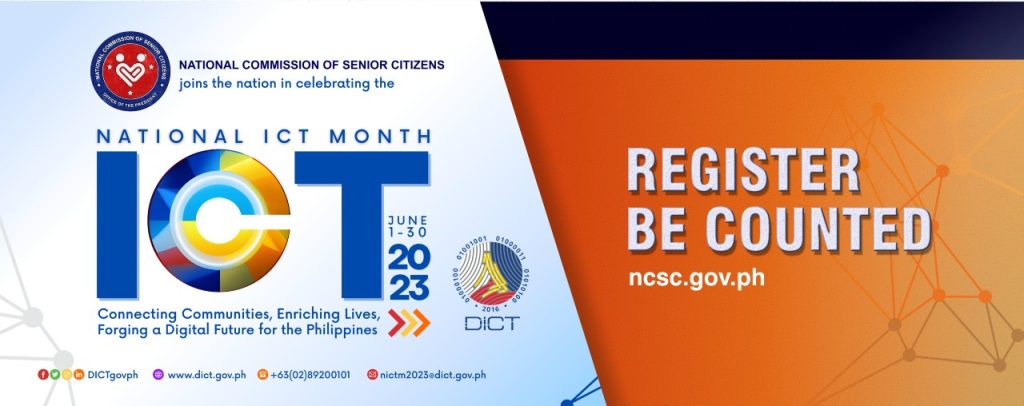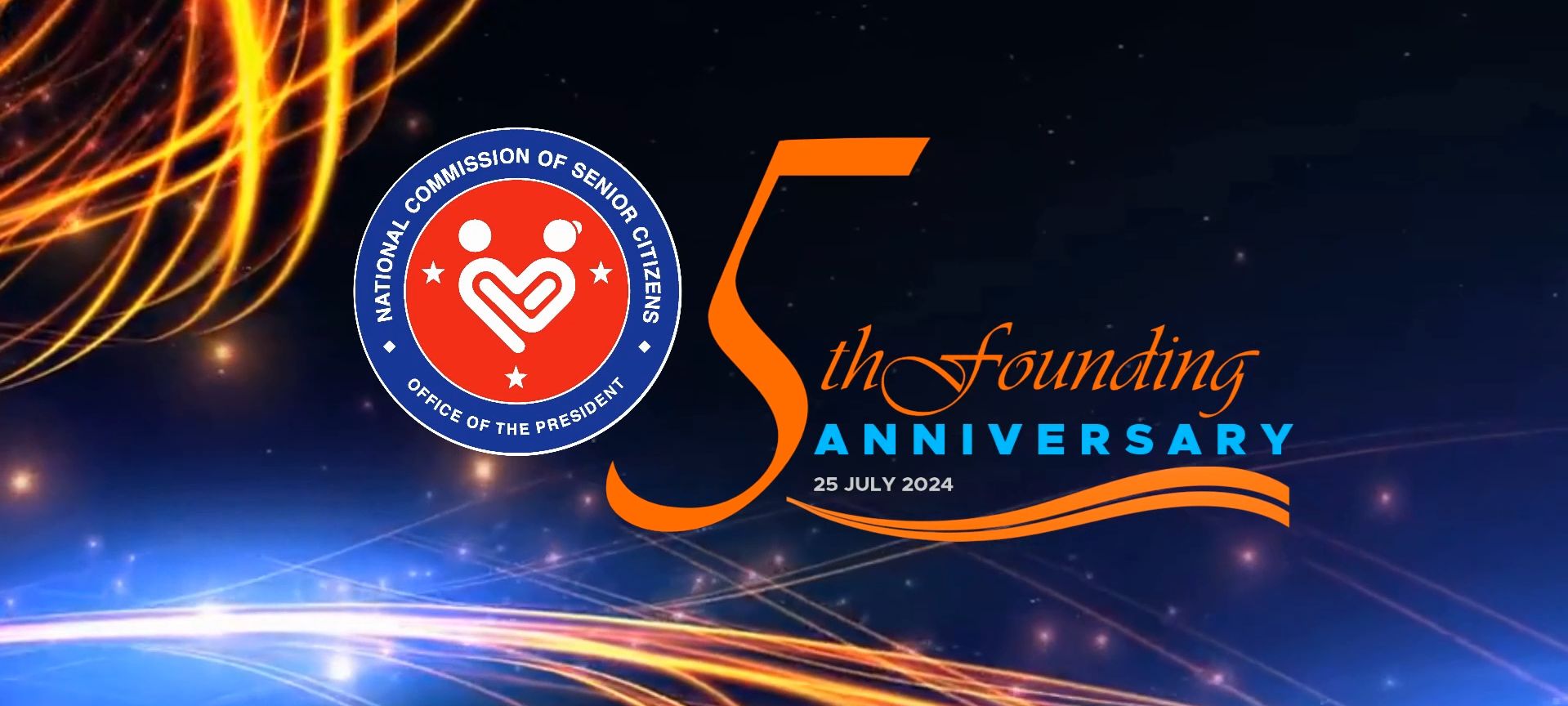The National Commission of Senior Citizens (NCSC) is a Philippine government agency designed and dedicated to the welfare and rights of senior citizens. It was created in hopes of promoting the dignity, security, and well-being of older adults through various programs, including financial and legal assistance, healthcare, and social services. With the NCSC, the government helps that senior citizens to get recognized, protected, and empowered, allowing them to remain active contributors to the society.
The NCSC specifically addresses the needs and challenges commonly faced by the aging population. These needs generally range from vulnerability to neglect, abuse, and social isolation. With the NCSC advocating for the rights and well-being of seniors, the government hopes to somehow reduce the social problems related to aging, including problems related to poverty and lack of accessible healthcare.
Awareness of the NCSC and its purposes also helps the senior citizens and their families take advantage of available support tailored to their needs. Consequently, not knowing about them may result in a decline in the quality of life and societal contributions of the aging Filipino population.
What is NCSC?
NCSC stands for the National Commission of Senior Citizens, a government agency in the Philippines tasked with safeguarding the rights, welfare, and dignity of the elderly population. The NCSC operates under the Office of the President, so senior citizens are provided with the necessary support and services to live fulfilling lives. The commission focuses mainly on promoting active aging, empowering older adults, and recognizing their contributions to nation-building.
The NCSC is also in charge of setting standards for senior citizens’ organizations, advocating for elderly rights, and implementing programs related to their health and well-being. Not only that, it is the NCSC’s job to implement programs that specifically raise awareness about the needs and contributions of older Filipinos. By addressing these things, the NCSC helps create a society that values and supports its elders.
History

The NCSC was officially launched and established upon the enactment of Republic Act No. 11350, a law which was signed into enforcement on July 25, 2019. This law marked a significant shift for the seniors, as it transferred their point of contact from the Department of Social Welfare and Development (DSWD) to a newly created yet dedicated commission. This new commission is designed so it caters only to the seniors, allowing for a more focused and specialized agency to address the challenges and needs of the aging population in the country.
Before the NCSC, all senior citizens’ concerns were managed by the National Coordinating and Monitoring Board (NCMB) under the DSWD. However, as the number of elderly Filipinos increased and their issues become more complicated, the government found it necessary to create an independent and dedicated commission for them. Now, five years into the creation of this dedicated commission we now know as the NCSC, the commission continues to offer comprehensive and centralized approach to promoting the rights, welfare, and active participation of the seniors in nation-building.
NCSC Logo

The NCSC logo embodies the commission’s mission, vision, values, and even purposes through the various design elements in it. Such elements are as follows:
- Colors: The red background symbolizes the strength and vibrant spirit of senior citizens, while the blue outer ring represents peace and trust, reflecting the NCSC’s commitment to supporting seniors. The white text and icons highlight the purity and transparency of the commission’s governance.
- Icons: At the center of the logo, two stylized human figures form a heart, representing care and compassion for the elderly, along with the importance of community and connection.
- Stars: Four stars surrounding the figures symbolize the NCSC’s core values of dedication, service, protection, and empowerment.
- Text: The text elements emphasize the commission’s official status under the Office of the President, showcasing its national significance in safeguarding the welfare of Filipino seniors.
Mission
“The NCSC, as a single cohesive agency, promotes the rights, welfare, and benefits of Filipino senior citizens and advocates collaboration among and between different stakeholders by formulating, implementing, and monitoring policies, plans, and programs and ensuring their effective implementation for the advancement of active, productive, and healthy aging and providing an enabling environment for older persons.”
Vision
“NCSC envisions a society that respects and promotes the dignity, security, wellness, and well-being of older persons, and recognizes their contribution to nation-building through lifelong learning, empowerment, and development in making them truly active citizens.”
Goal
The NCSC specifically hopes to build a community where older persons can be themselves while enjoying a high quality of life, characterized by physical, psychological, and emotional well-being. This goal of the NCSC is tailored for seniors for the sole purpose of helping them integrate into a humane society that values their independence, self-reliance, and overall well-being.
Mandate
The NCSC’s mandate is also quite specific as it was designed to fulfill the commission’s mission by focusing on:
- Advocacy and Collaboration: Promote partnerships between senior citizens and various stakeholders for a more effective implementation of programs and services.
- Development and Well-being: Advance the health, well-being, and development of senior citizens through comprehensive and targeted initiatives.
- Supportive Environment: Create and maintain a supportive and enabling environment for the seniors, so that they are always well cared for and respected in society.
Organizational Structure
The organization of the NCSC is that of a collegial body, and it is composed of a Chairperson and six Commissioners. The Chairperson serves as the Chief Executive Officer (CEO), who leads and oversees the commissions operations in its entirety. Under him are the six Commissioners who represents a specific geographical region. These commissioners ensure that the diverse needs of senior citizens across the country are addressed. The full Commission convenes at least once a month to discuss and make decisions on matters affecting senior citizens. The structure is quite simple, with only the following items on it:
- Chairperson: Acts as the Chief Executive Officer, overseeing the Commission’s overall operations and initiatives. Also acts as the Commissioner in Clustered Region 2-NCR.
- Six Commissioners: Represent different geographical regions of the Philippines and are clustered as follows:
- Commissioner in Clustered Region 1: Covers Regions 1, 2, 3 and CAR
- Commissioner in Clustered Region 3: Covers Regions 4-CALABARZON, 4-MIMAROPA, and 5
- Commissioner in Clustered Region 4: Covers Regions 6 and 7
- Commissioner in Clustered Region 5: Covers Region 8
- Commissioner in Clustered Region 7/6: Covers Regions 10, 12, and BARMM
- Commissioner in Clustered Region 8/6: Covers Regions 11, 13, and 9
Key Functions
As an agency tasked with ensuring the welfare and protection of senior citizens in the Philippines, tthe NCSC carries out the following functions aimed at promoting the rights, well-being, and active participation of older persons in society:
General Functions
- Ensure Implementation: Ensure that laws, policies, and programs related to senior citizens (SCs) are fully implemented, reviewed, and improved, recommending actions to Congress and the President.
- Policy Formulation: Develop and implement policies to protect and promote the rights and well-being of the elderly.population.
- Awareness Campaigns: Conduct campaigns to raise awareness about the rights of the elderly.
- Local and National Collaboration: Work with local governments and national agencies on matters concerning SCs’ welfare.
- International Representation: Represent the Philippines in international events related to SCs and build international partnerships.
- Advisory Body: Assemble advisory groups from various sectors to assist in fulfilling the Commission’s duties.
- Commission Member Selection: Develop processes for selecting and nominating Commission members for Presidential appointment.
Sectoral Outcomes
- Community Development: Foster socio-economic development and resilience among older persons and their families.
Organizational Outcomes
- Implementation Support: Strengthen and ensure the execution of laws, policies, and services for senior citizens.
- Senior Citizen Empowerment: Empower senior citizens through awareness and capacity-building initiatives to enhance their role in nation-building.
- Health and Well-being Promotion: Advance the health and overall well-being of senior citizens.
- Nation-building Motivation: Encourage senior citizens to actively contribute to nation-building.
- Contribution Maximization: Maximize the impact of senior citizens through established mechanisms.
- Community Appreciation: Implement measures to support and honor senior citizens within the community.
- Beneficial Programs: Create programs that benefit senior citizens, their families, and the wider community.
- Enterprise Participation: Encourage senior citizens to engage in social and economic enterprises.
Benefits

The NCSC was established to bring significant and specific benefits to the older members of the community. These benefits which helps enhance the quality of life for these older adults and ensures their active involvement in society, include:
1. Protection of Rights
As the primary agency in charge of the seniors, the NCSC is in charge of making sure that the rights of senior citizens are always upheld. They are also tasked with advocating for policies and laws that protect these elders from abuse and discrimination.
2. Access to Services
It is also the commission’s job to get the senior citizens an improved access to all essential services, from healthcare to social security, and livelihood programs.
3. Social Inclusion
With the NCSC in charge, the government promotes the active participation of senior citizens in community activities, making sure they experience a sense of belonging and reducing instances of social isolation.
4. Empowerment
The commission also offers education and capacity-building programs, in an attempt to empower the older citizens to continue contributing to nation-building.
5. Improved Welfare
The NCSC also works to enhance the overall well-being of senior citizens by ensuring that their physical, mental, and emotional health needs are met.
Coverage
The NCSC also handles the challenges faced by senior citizens by offering various programs and services designed to make their lives much more bearable. This comprehensive approach covers programs that helps improve the quality of their life, support their well-being, and promote their active participation in society.
1. Healthcare Services
This covers programs that facilitates elderly access to medical care, including specialized treatment and preventive services tailored to the needs of the senior citizens.
2. Social Welfare Programs
It covers cash or financial assistance, social security benefits, and subsidies offered in an attempt to help seniors manage their living expenses and reduce their economic burdens.
3. Rehabilitation and Support Services
This refers to programs like physical therapy, mental health support, and assistance with daily living activities to help seniors maintain independence and maintain their dignity.
4. Legal Aid
The NCSC also provides legal support, especially when it comes to addressing issues such as elder abuse, inheritance rights, and other legal matters concerning the seniors.
5. Community Engagement
Also part of the commission’s initiative is the promotion of social activities and volunteer opportunities to encourage seniors’ involvement in community life and reduce their isolation from the greater part of the society.
Specific Programs and Services Offered by NCSC
Some of the programs offered by the NCSC for the benefit of the senior citizens in the Philippines include:
1. SECURE (Senior Citizens’ Unit for Rights Enforcement)
This program protects the seniors from abuse and neglect by providing legal aid and advocacy, helping seniors understand and assert their rights.
2. WHEREB (Wellness, Health, Emergency Response, and Benefits)
This focuses on the health and wellness of seniors. It offers emergency assistance, medical alert systems, and access to healthcare professionals, so that the seniors can feel safe and secure at all times.
3. SECADNA (Senior Citizens’ Action for Development & Nation-building)
This program encourages seniors to use their skills and experience through volunteer work and mentoring, allowing the general public to see and recognize their valuable contributions to the society.
4. SOCPEN (Social Pension, Centenarian Benefits, Support to Disabled)
SOCPEN is designed to offer cash assistance to support seniors who are unable to earn a livelihood. It ensures that eligible seniors receive a regular allowance, allowing them to ease off from relying on the support of younger family members and enhancing their quality of life.
5. RASM (Risk Assessment and Security Management)
RASM identifies all the potential risks to seniors and effectively implements measures to address them and enhance the safety and security of seniors in their own homes and communities.
6. PROPALL (Programs, Plans, and Legislative Liaison)
PROPALL offers professional support designed to assist seniors in navigating healthcare, insurance, and social services. It offers personalized support to help them access whatever resources they need.
7. INACCORD (Inter-Agency Coordination)
This program ensures effective collaboration between various agencies to provide comprehensive support to senior citizens.
8. IMICT (Information Management and Info-Communication Technology)
The Elderly Database Management System (EDMS) collects data on the aging population, helping NCSC develop targeted programs and services based on the needs of seniors.
9. PACE (Participation, Communication, and Education)
This program is designed to encourage seniors to remain active and engaged through volunteering, attending events, and participating in educational courses.
How the NCSC Helps Filipino Senior Citizens
The NCSC is an agency primarily designed to support and protect the elderly population in the Philippines through its various programs and services. The commission also offers cash assistance, health support, legal aid, while creating opportunities for the seniors to have active participation in the society. By providing these resources, NCSC helps ensure that senior citizens live a normal, fulfilling, and secure lives in the country, especially in their advanced age.
Video: How to Register as a Senior Citizen via the NCSC Online Registration System
As part of the initiatives to create a centralized database of seniors in the country, the NCSC also launched a straightforward and simpler online registration system to make the NCSC services and benefits more accessible. In this video from HowToPaanoTo, you can learn more about how to get through the registration procedures more efficiently. It offers detailed instructions to get you through each step so you’ll be able to access all the support and resources offered by the commission to meet your specific needs as a senior citizen.
Summary
As an agency specially dedicated to improving the lives of senior citizens in the Philippines, the NCSC operates by implementing comprehensive programs and services. Its efforts in providing cash assistance and other support contribute to the well-being and dignity of the elderly, making a significant impact on their quality of life. If you are qualified members of the elder generation and you have yet to register at the NCSC, then it’s time to do so and learn more about what tou are actually missing out on.
Contact Information
For your inquiries and concerns, you may reach out to the NCSC via the contacts or address below.
National Commission of Senior Citizens (NCSC)
Central Office Address: 4F AAP Tower, Aurora Blvd., New Manila, Quezon City
Email Address: contact@ncsc.gov.ph (general concerns), registration@ncsc.gov.ph (online registration concerns)
Contact Numbers: (063)(02) 8652-5593-NCR, (063)(02) 8652-4282 – Cluster 3, (063)(02) 8281-3301-Central
Official website: https://www.ncsc.gov.ph/
Official Facebook Page: https://web.facebook.com/NCSC.Philippines.OfficialPage
